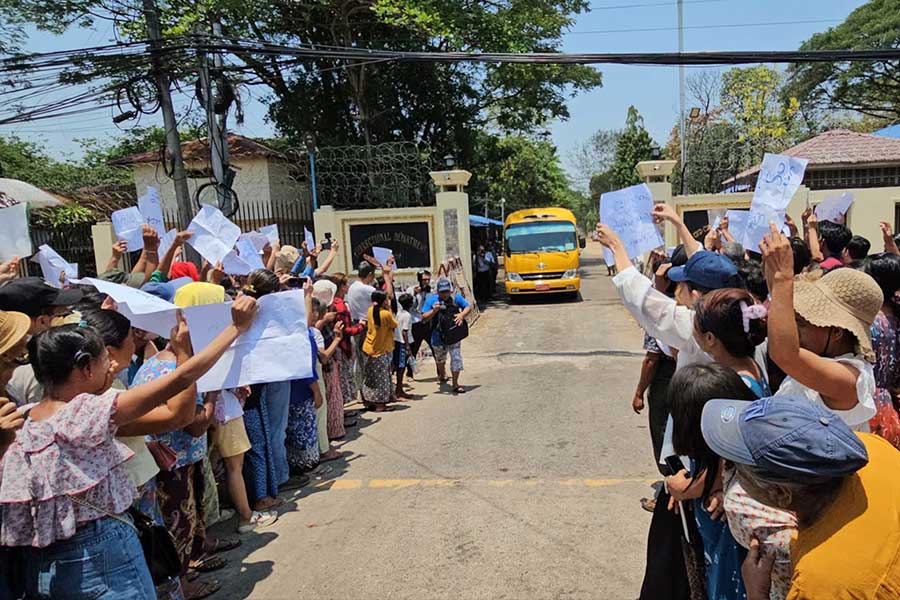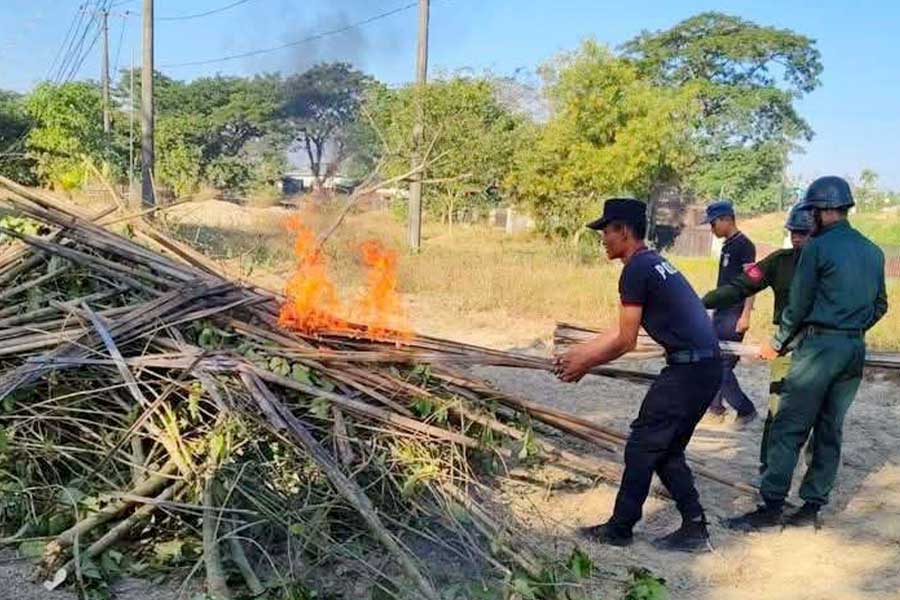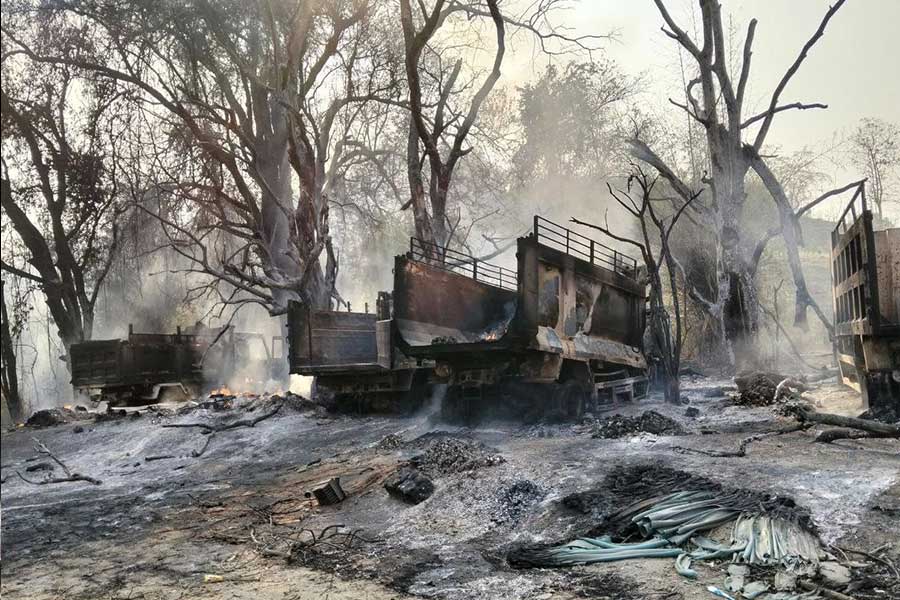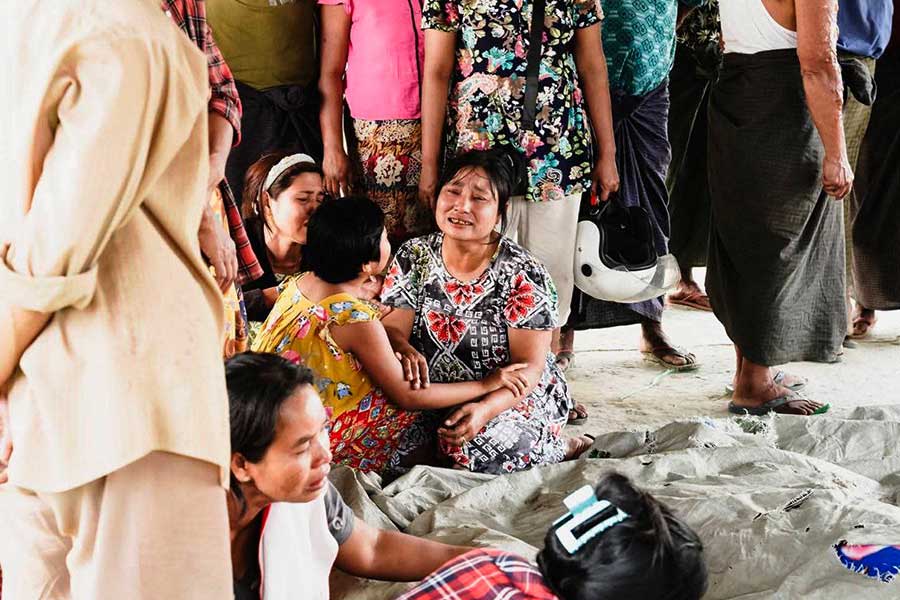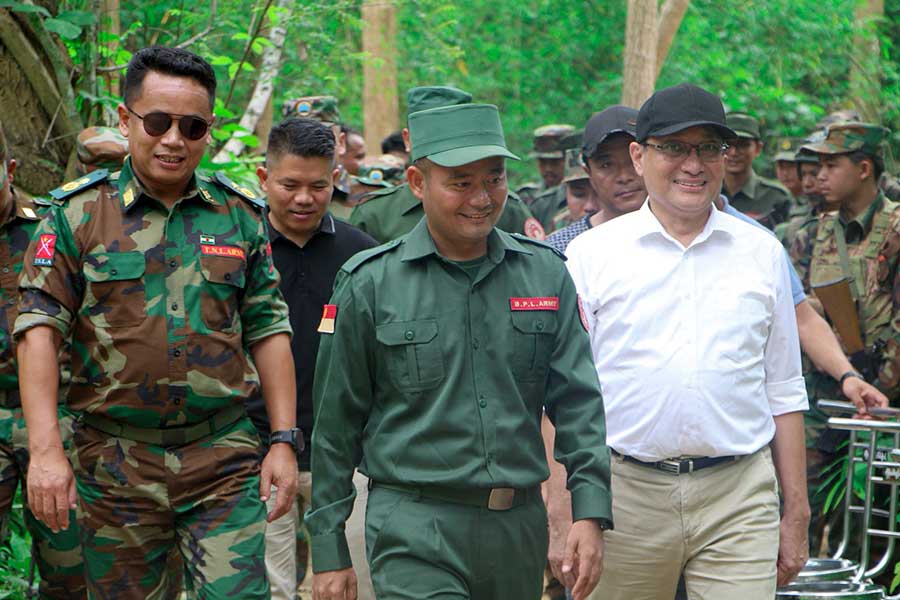- Weekly Highlights from Arakan (Feb 23 to March 1, 2026)
- Over 300 political prisoners freed from 10 prisons nationwide
- DMG Editorial: Between War and Opportunity - A New Border Reality for Bangladesh and Arakan
- Arakan Army sets five-year prison term for kratom cultivation in controlled areas
- Junta airstrikes kill over 25, including Arakanese merchants, in Mindon Twsp
FPNCC members decline Union Peace Conference invite
Six ethnic armed groups invited to attend the 4th Union Peace Conference – 21st Century Panglong to be convened on August 19 in Nay Pyi Taw will not be making the trip to the nation’s capital, the Federal Political Negotiation and Consultative Committee said on August 13.
13 Aug 2020
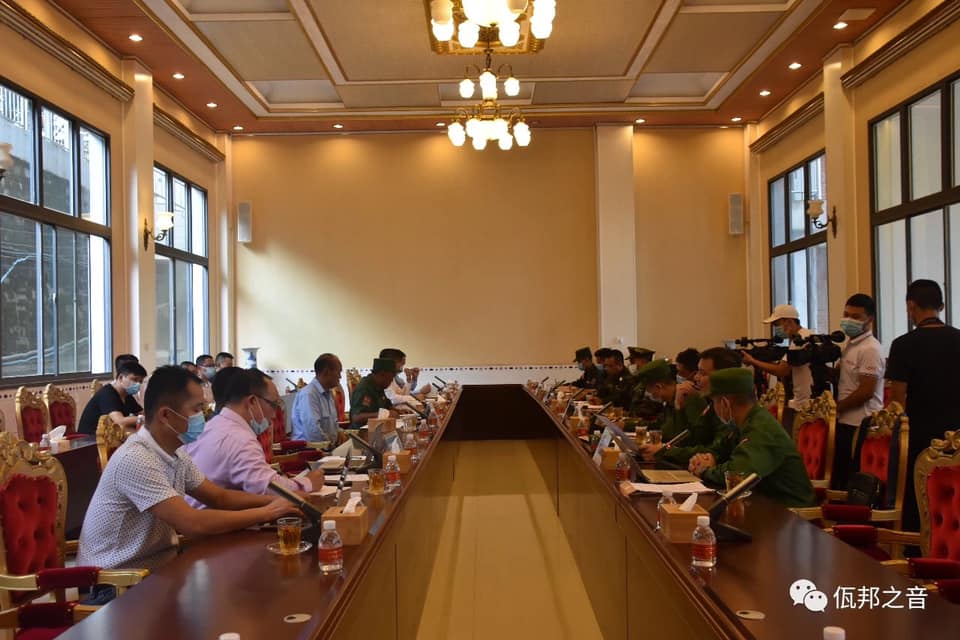
Min Tun | DMG
13 August, Sittwe
Six ethnic armed groups invited to attend the 4th Union Peace Conference – 21st Century Panglong to be convened on August 19 in Nay Pyi Taw will not be making the trip to the nation’s capital, the Federal Political Negotiation and Consultative Committee said on August 13.
The statement said they cannot attend the Union Peace Conference due primarily to the COVID-19 pandemic.
“The main reason we cannot attend the Union Peace Conference is COVID-19,” the statement said. “The 4th Union Peace Conference will be held during the COVID-19 outbreak. Our hillside and border areas lack medical care skills and have insufficient medical equipment. And, we are facing difficulty arranging our trips amid the COVID-19 pandemic.”
The statement also said trust could be further improved only if all armed groups involved in ongoing conflict are allowed to attend the conference and speak face to face, saying that peace and national reconciliation would follow.
Sai Kyaw Nyunt, secretary of the Union Peace Dialogue Joint Committee, said he believed the government would forge ahead with holding the 4th Union Peace Conference despite the six ethnic armed groups having bowed out.
“There is not much benefit for them [the six groups] at the Union Peace Conference because the points agreed in the Joint Implementation Coordination Meeting will be discussed finally there and signed into the Union Accord. So, the government will hold the conference without their attending,” Sai Kyaw Nyunt said.
“For me, it is better if all [armed groups] participate in the conference. I welcome all of them. I want them to attend the conference. I want the government to invite all of them,” he said.
Looming over the attendees list and RSVPs was the government’s decision not to invite the Arakan Army, which is engaged in a conflict with the military in western Myanmar that will mark an unofficial two-year anniversary in December.
The FPNCC statement expressed its sadness over the union government’s exclusion of the Arakan Army from the 4th Union Peace Conference.
The government spurned the AA, which was declared an unlawful association and terrorist group in March, but invited most other ethnic armed groups that have yet to sign the Nationwide Ceasefire Agreement.
The FPNCC comprises seven ethnic armed groups. They are the United Wa State Army; the Mong La-based National Democratic Alliance Army; Kachin Independence Army; the Kokang-based Myanmar National Democratic Alliance Army; Ta’ang National Liberation Army; Shan State Progressive Party/Shan State Army; and Arakan Army.




